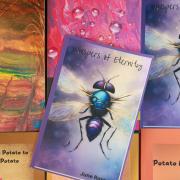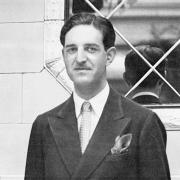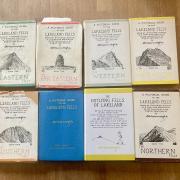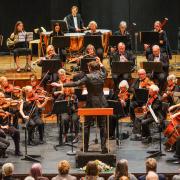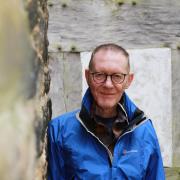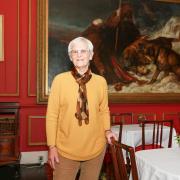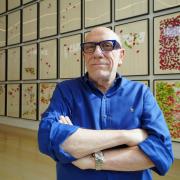The first Nobel Prizes were awarded 120 years ago in December 1901. Lancashire has been honoured many times by these prestigious awards, either being bestowed on someone born in the county, or someone who had much to do with the county. To my knowledge there have been nine Nobel Laureates born within the historic boundaries of Lancashire, with many more associated with the universities of Liverpool and Manchester.
Alfred Nobel (1833-96), the Swedish chemist, inventor, engineer, businessman, manufacturer and philanthropist who was the inspiration and benefactor behind his eponymous prizes, held 355 patents, the most famous being for dynamite. That’s a curio as one of Nobel’s five original prizes was the Peace one, the others being Physics, Chemistry, Physiology/Medicine and Literature. A sixth for Economics was added in 1968. Nobel left over £2 million, most of which he wanted spent on those prizes.
Peter Ratcliffe (1954-) was born in Morecambe, attended Lancaster Royal Grammar School, and shared the Physiology/Medicine prize in 2019 for his work on cellular reactions to hypoxia, a condition that affects either the whole body, or part of it, with the affected area deprived of an adequate oxygen supply.
It was not the first time Lancashire had made its mark in ground-breaking medical research. The University of Liverpool claims ten Nobel Laureates among its current and past staff and students, including Sir Ronald Ross (1857-1932) and Charles Sherrington (1857-1952). Born in the same year, the two men maintained a certain symmetry by both winning the Physiology/Medicine Prize, Ross in 1902 and Sherrington 30 years later in 1932.

Ross, born in India, went on to be Professor and Chairman of the Liverpool School of Tropical Medicine, while Sherrington, originally from Middlesex, became Holt Professor of Physiology at Liverpool. Ross’s magnum opus was his work on the transmission of malaria, including his proof that the disease was carried by mosquitoes, the definitive evidence coming from analysis of an insect in 1897 which Ross found had the malarial parasite in its gastrointestinal tract.
Ross was the first ever British recipient of an award and the first to have been born anywhere outside Europe (his father was a general in the British Indian Army). The work of Sir Charles Scott Sherrington saw him share the 1932 prize as his research into the functions of neurons helped mould our current understanding of the body’s central nervous system.
Among winners of the Chemistry Prize was Michael Smith (1932-2000) who was born in Blackpool, and attended Manchester University before winning the award in 1993. Another shared award, Smith was honoured for his work developing specific changes to DNA sequences of genes and gene products.

The University of Manchester claims 25 Laureates among current and past staff and students, including one of the most famous of them all, Ernest Rutherford (1871-1937). Born in New Zealand, Rutherford was another winner of the Chemistry Prize (1908), which he received while Langworthy Professor of Physics at Manchester.
He was an all-rounder who came to be known as the ‘father of nuclear physics’. Rutherford moved to Manchester in 1907, the year before his award, and subsequently performed the first artificially induced nuclear reaction in 1917 and discovered a subatomic particle, which he named the ‘proton’ in 1920. Element 104 on the Periodic Table, ‘Rutherfordium’, is named after him.
Sometimes great minds make discoveries that lead into dark places they hadn’t anticipated. James Chadwick (1891-1974) was born in Cheshire, schooled in Manchester, and worked at both Manchester and Liverpool. Under Rutherford’s leadership he’d discover the neutron in 1932 and would subsequently emulate his mentor by winning the Physics Prize of 1935. The sad fulfilment of the work of these two great physicists came during World War Two when Chadwick headed the British representation within the US Manhattan Project, which ultimately saw two atom bombs dropped on Japanese cities.
Sir Joseph John Thomson (1856-1940), was born in Cheetham Hill, Manchester and won the 1906 Prize for Physics. He’s credited with the discovery of the first subatomic particle, the electron, while his Nobel came for his work on the conduction of electricity in gases. Impressively, JJ Thomson’s son, George (1892-1975), also won the Physics Prize (1937), one of only five father/son pairings to have won Nobel Prizes.
Charles Barkla (1877-1944), was born in Widnes, and picked up the Physics prize in 1917 for his work on X-rays. He numbered Liverpool among his alma mater, a university where he would later work, and coincidentally had JJ Thomson as an academic adviser during his time at Cambridge.
Continuing with Physics, there’s a number of prominent Manchester academicians who’ve scooped that award. Sir William Bragg (1862-1942) was born in Cumberland and won the 1915 Prize. Bragg was another who utilised X-rays, receiving his award for his ‘analysis of crystal structure by means of X-rays’, an award that he uniquely shared with his own son, Lawrence. The mineral braggite was named after the two men and Sir William actually succeeded Rutherford as Langworthy Professor of Physics at Manchester and was another to have the influential JJ Thomson as an academic advisor. This is not solely a tale of academia as Bragg Snr. was quite the sportsman, being adept at chess, tennis, golf and lacrosse.
A student of Manchester University and Manchester Municipal College of Technology, Sir John Cockcroft (1897-1967) shared the Physics Prize in 1951 for splitting the atom. He would take up an apprenticeship at Metropolitan-Vickers, Trafford Park, before becoming a research student under Rutherford at Cambridge. Cockcroft joined Chadwick on the MAUD Committee during WW2, a British scientific working group that assessed the feasibility of an atomic bomb and post-war would become director of the Atomic Energy Research Establishment, which was responsible for the first nuclear reactor to operate in Western Europe (1947) as we searched for cleaner, more sustainable sources of fuel.
Konstantin Novoselov (1974-) was born in the Soviet Union, but also holds UK citizenship, and won the Physics Prize in 2010. He is the current Langworthy Professor of Physics and Astronomy at Manchester. It was his work on graphene that earned him the shared Nobel Prize. Graphene, an allotrope of carbon, a transparent and flexible conductor, has many applications, including solar cells, LEDs, touch panels, and smart windows/phones. Smartphones with graphene touch screens are already being marketed.
John Polanyi (1929-) was born in Berlin and won the Nobel Chemistry Prize in 1986. He was both a student and Professor of Physical Chemistry at Manchester. His Nobel was awarded for his research in chemical kinetics, or the understanding of the rates of chemical reactions.








